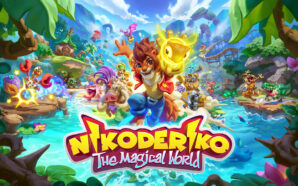Last year China finally lifted its longstanding game console ban allowing consoles to be manufactured and purchased within the country’s borders. Whilst there are still some stringent rules in place and whether the lift will lead to a seismic change in attitude or policy remains to be seen but this is 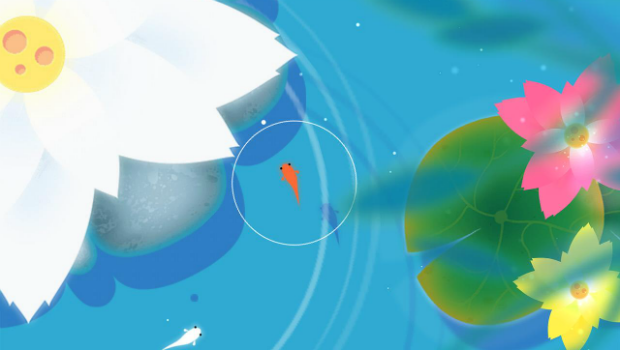 nonetheless a progressive step towards providing freedom to an entire generation who have no idea what it’s like to sit with a controller in their hand without constraint or condemnation from the national government. Given the circumstances, KOI, the first game to be developed entirely in China by Dotoyou Games and published in the West was always going to be of major significance. Whilst KOI isn’t the bombastic triple-A blockbuster to brutishly knock down the walls of oppression and officially announce China’s returning presence in the video game industry, it is still a well-made short adventure that leads the way and puts the future of Chinese-developed games in good stead.
nonetheless a progressive step towards providing freedom to an entire generation who have no idea what it’s like to sit with a controller in their hand without constraint or condemnation from the national government. Given the circumstances, KOI, the first game to be developed entirely in China by Dotoyou Games and published in the West was always going to be of major significance. Whilst KOI isn’t the bombastic triple-A blockbuster to brutishly knock down the walls of oppression and officially announce China’s returning presence in the video game industry, it is still a well-made short adventure that leads the way and puts the future of Chinese-developed games in good stead.
In KOI you unsurprisingly play as a fish; KOI of course being a breed of large colourful carp typically bred for ornamental ponds. Many have compared KOI to thatgamecompany’s debut game Flow and they wouldn’t be wrong in their assumption; both are PS4 exclusives with a marine setting and both are short, contained experiences that do not tax the player with complex challenges. KOI is able to set itself apart from what preceded it however as KOI has more interactive qualities to its gameplay and is far more colourful in its presentation.
In KOI your aim is to swim around, gather tiny schools of fish and open up lotus flowers, restoring life to the submarine flora and flora. It’s very straightforward stuff; swimming near a fish of a certain colour will cause it to join you and then guiding it towards a flower of its corresponding colour will cause the lotus to bloom. 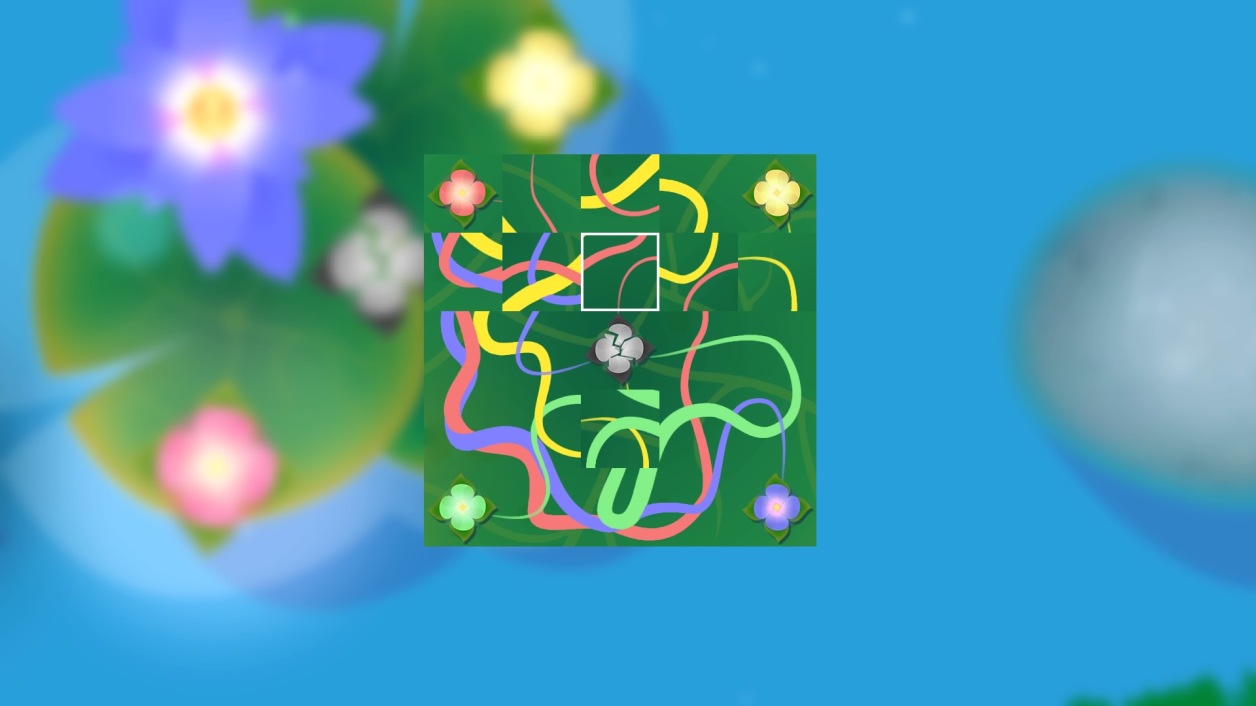 Thrown into the mix and adding another layer of interactivity are small puzzles such as sequence memory tests and pictures with rotating tiles. Completing these puzzles as well as getting flowers to bloom will allow you to progress to new places and open up new areas. Some levels contain obstacles such as large black fish to be avoided (if you cross one’s path you’re momentarily stunned) and currents to swim against but other than this there’s not much in your way to progress through the game’s eight levels. If you’re a cynic you could assume that KOI’s simplicity is due to a lack of ambition or even budget but, according to Oasis Games, the aim was always to make a relaxing and zen-like experience and I feel that they have succeeded greatly.
Thrown into the mix and adding another layer of interactivity are small puzzles such as sequence memory tests and pictures with rotating tiles. Completing these puzzles as well as getting flowers to bloom will allow you to progress to new places and open up new areas. Some levels contain obstacles such as large black fish to be avoided (if you cross one’s path you’re momentarily stunned) and currents to swim against but other than this there’s not much in your way to progress through the game’s eight levels. If you’re a cynic you could assume that KOI’s simplicity is due to a lack of ambition or even budget but, according to Oasis Games, the aim was always to make a relaxing and zen-like experience and I feel that they have succeeded greatly.
With games such as these; those that are categorised under the ‘walking simulator’ genre, or, in this case, ‘swimming simulator’, I believe that they typically rely on other tenets of game design in order to appeal players; notably sound design, visual presentation and narrative. KOI has a simple yet attractive art style and, just like the koi, objects in the environment are shaded in sharp, vibrant colours that contrast nicely with the soft blue hues of the surrounding waters. The animation is equally effective with the movement of the fish being believable and the rapid oscillation of their tails possessing a hypnotic and calming quality just like the gameplay. The music adds to this sense of relaxation; a diverse and meditative soundtrack of Chinese piano riffs and chords complements proceedings wonderfully.
The overall narrative is quite barebones with the koi’s sole aim to restore life to the waters it finds itself in. More story can be garnered by collecting four puzzle pieces found in each level that make up a descriptive picture that fills in the gaps of the narrative but 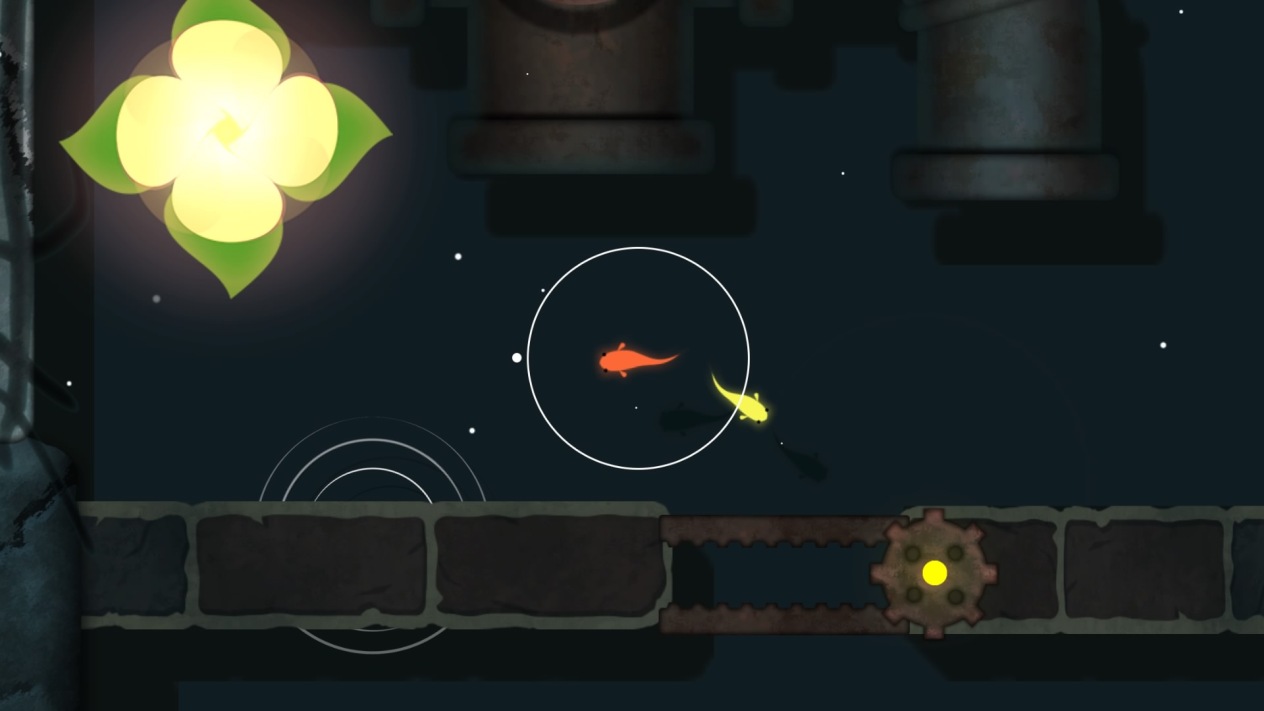 other than this you’re not getting a profound, emotional story. There is however a social commentary on the destructiveness of China’s industrialisation on nature. A few levels in you’re no longer swimming in clear blue fresh waters, rather you find yourself in dark, murky polluted areas of the briny deep. The message is a tad on the nose (skeletal fish remains maybe a bit too much) but it’s not overly heavy handed either and is therefore conveyed somewhat effectively. And for a country notorious for its censorship (the ban was lifted with the caveat that all games would be censored) it’s a commendable move to include this topic of discussion in the game.
other than this you’re not getting a profound, emotional story. There is however a social commentary on the destructiveness of China’s industrialisation on nature. A few levels in you’re no longer swimming in clear blue fresh waters, rather you find yourself in dark, murky polluted areas of the briny deep. The message is a tad on the nose (skeletal fish remains maybe a bit too much) but it’s not overly heavy handed either and is therefore conveyed somewhat effectively. And for a country notorious for its censorship (the ban was lifted with the caveat that all games would be censored) it’s a commendable move to include this topic of discussion in the game.
Overall KOI will take you about one and a half hours to complete. Besides proceeding through the story there are collectibles to pick up along the way in puzzle pieces and stars. These will be scattered amongst the levels, requiring you to spend more time exploring the environment and collecting all four of each will result in a 100% rating for the level. As mentioned previously, collecting all puzzle pieces will create a descriptive picture that fills in the narrative and all stars are required on the last level to see the game’s ‘true ending’ cutscene. There is also the ability to unlock different fish avatars to play as by completing objectives. For example, being attacked by the black fish twenty times will unlock the black fish avatar; completing a level in a certain timeframe will unlock another coloured fish; opening all flowers will unlock another colour and so forth. Completionists will return to each level (after completing the game you can go back to any level from the main menu) to ensure that they have 100% completion by collecting all puzzle pieces, stars and completing all the objectives to unlock the different fish skins (or should I say scales?) but other than that there’s not much reason to return to KOI, limiting its replay value.
Oasis Games set out to make a short, relaxing experience and with KOI’s charming visuals, effective animation, hypnotic soundtrack and simple gameplay, they have certainly achieved their goal. Not every game warrants complex mechanics and challenging gameplay and with games 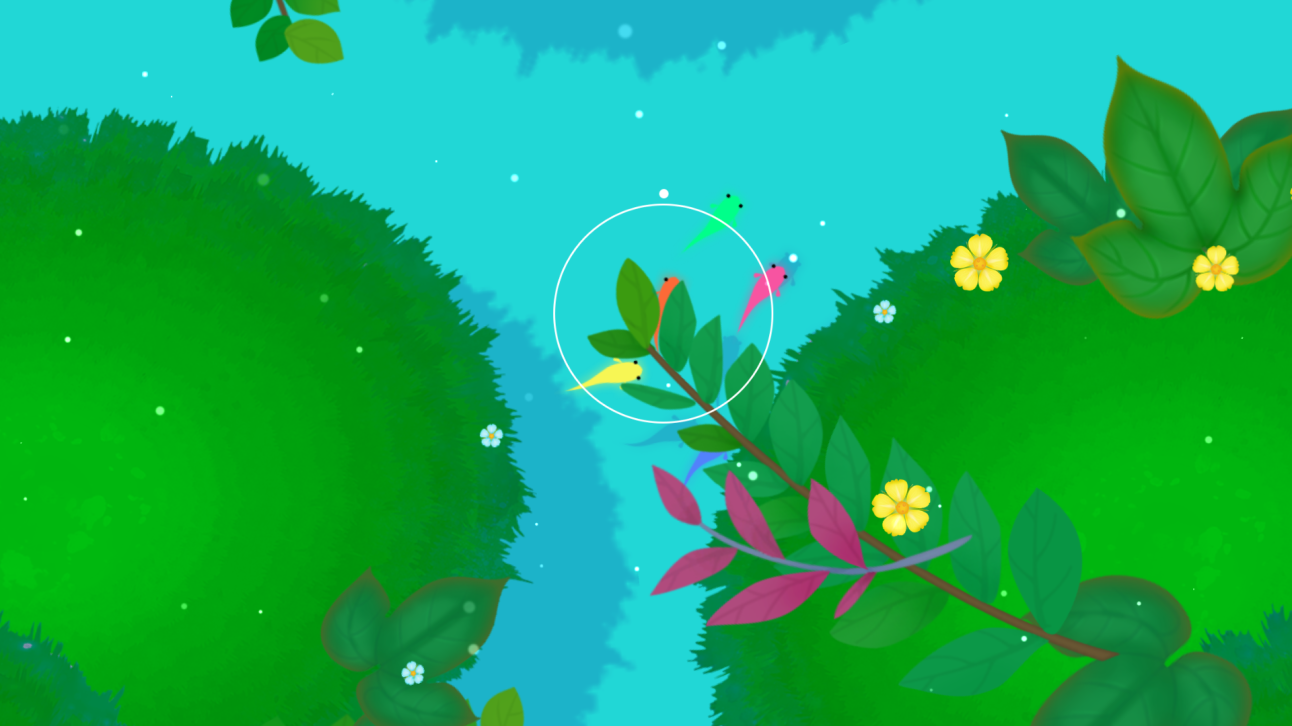 such as Flow, Flower and Journey receiving a multitude of plaudits, there’s nothing that precludes other developers from going in the same direction. Yes, KOI may be a safe bet that neither pushes the boundaries of game development nor the temperament of the Chinese government but that’s okay; it manages to provide an enjoyable zen-like experience whilst also spreading a crucial social message at the same time. What’s of more importance however is that this is only the beginning of Chinese-developed console games that will come to the West. With a population of over a billion there’s undoubtedly a wealth of untapped creativity waiting to be unleashed in the Middle Kingdom and I for one cannot wait to see what comes next.
such as Flow, Flower and Journey receiving a multitude of plaudits, there’s nothing that precludes other developers from going in the same direction. Yes, KOI may be a safe bet that neither pushes the boundaries of game development nor the temperament of the Chinese government but that’s okay; it manages to provide an enjoyable zen-like experience whilst also spreading a crucial social message at the same time. What’s of more importance however is that this is only the beginning of Chinese-developed console games that will come to the West. With a population of over a billion there’s undoubtedly a wealth of untapped creativity waiting to be unleashed in the Middle Kingdom and I for one cannot wait to see what comes next.

- Meditative Gameplay
- Great Soundtrack & Visuals
- Social Message
- Very Short
- Limited Replay Value
- Barebones Narrative






